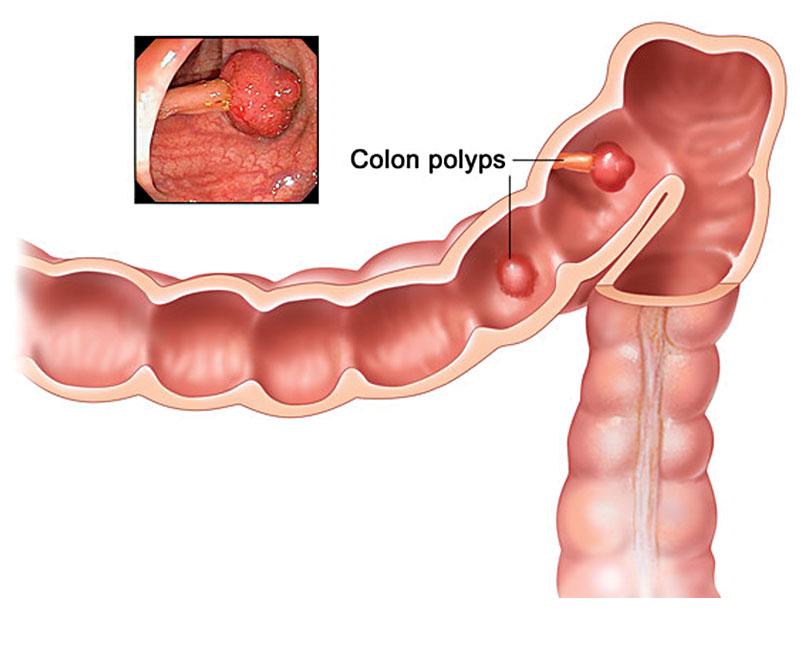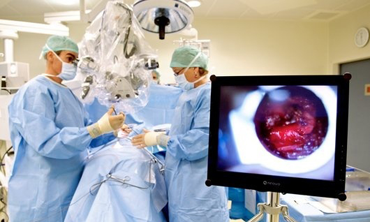Cancer that forms in the tissues of the colon (the longest part of the large intestine). Most colon cancers are adenocarcinomas 
Polyps may be small and produce few, if any, symptoms. For this reason, doctors recommend regular screening tests to help prevent colon cancer by identifying polyps before they become colon cancer.

Who should be concerned about colorectal cancer?
While it does not get the attention of other cancers, colorectal cancer is the third leading cause of cancer (excluding skin cancer) in the United States and the second leading cause of cancer-related deaths. Risks factors include:
- Age: Chances of developing colorectal cancer increase after age 50. More than 90 percent of people diagnosed with colorectal cancer are older than 50.
- Personal history of colorectal cancer: If you have had colorectal cancer, even though it has been completely removed, you are more likely to develop new cancers in the colon and rectum.
- A personal history of colorectal polyps: If you have had an adenomatous-type polyp, you are at increased risk for developing colorectal cancer, especially if the polyps are large or if there are many of them.
- A personal history of chronic inflammatory bowel disease (IBD): If you have IBD, including ulcerative colitis or Crohn’s Disease, you should begin having a screening colonoscopy eight to 12 years after being diagnosed.

What are treatment options for colorectal cancer?
Treatment for colorectal cancer depends mostly on the size, location and extent 
How can I reduce my risk for colon cancer?
Screening is the most powerful tool in prevention – regular screening should begin after 50 years of age. Eat plenty of fruits, vegetables and whole grain foods. Limit the intake of high-fat foods. Be physically active with at least 30 minutes of exercise on five or more days of the week. Maintain a healthy weight. Know your family’s cancer history.
To know more about Colorectal Cancer Treatment please visit this links : https://safemedtrip.com/treatment-options-available-for-colon-cancer-at-top-cancer-hospitals-in-india.html
WORLD’s LOWEST COST SURGERY PACKAGES – This most modern treatment is done in India at a fraction of the cost of similar services anywhere in the world. SafeMedTrip affliliated World class hospitals in India provide an expert opinion from experienced surgeons and the package cost includes stay in a private room where a companion can stay with the patient, surgeon fee, medicines and consumables, nursing care, patient’s food and airport pick up & drop etc. etc.
About Safemedtrip.com
Safemedtrip.com is a patient support service company set up by a group of hospital industry professionals and managed by doctors and professional managers with a strong shared vision and ethical values. It helps overseas patients considering high quality medical treatment in India to find the best provider hospitals and provides all required support services to make their visit to India a successful, rather a memorable experience.
GET A FREE, NO OBLIGATION EXPERT OPINION FROM INDIA’s BEST DOCTORS
Please scan and email your medical reports and images to us at hospitalindia@gmail.com or send them to us by at WhatsApp on +91 98 9999 3637 and we shall get you a Free, No Obligation Opinion and Treatment Cost Estimates from at least three of leading medical specialists at World Class Hospitals in India
For more information and help please visit https://SafeMedTrip.com

 Click to WhatsApp
Click to WhatsApp +91-9899993637
+91-9899993637



